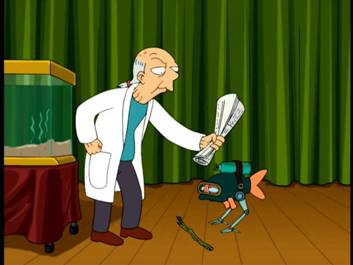Quote:
Originally Posted by Ray Jackson

You might be the authoritative voice here on film noir.
You told me you thought Odd Man Out is a great British film noir.
Does that mean you love it?
Would you put it in your film noir top ten?
...top 20?
|
So many Ray Jackson questions.... Haha.
Odd Man Out is not in my Top 10 Films Noir list, but I hold it in high regard.
Here's my User Review that I wrote for Odd Man Out...
In Carol Reed's 1947 film, Odd Man Out, Johnny McQueen, played by James Mason in what is perhaps his most vulnerable and sympathetic role, is introduced to us in the opening scenes as the "odd man out" who, despite his position as the local leader of an Irish nationalist organization, expresses a disdain for violence and is viewed as ineffective by fellow gang members who fear that his prison sentence and his subsequent stretch in a safe house have left him ill-equipped to conduct a dangerous payroll robbery. After the robbery goes wrong, a wounded McQueen wanders bleeding through dark city streets on his way to salvation. The next few hours of McQueen's life are marked by a series of encounters with various people who each provide different glimpses of life in a politically-fractured setting.
Odd Man Out, like Reed's 1949 noir masterpiece, The Third Man, serves almost as an overseas "darker evil twin" of Michael Curtiz's Casablanca. In Casablanca, characters are compelled to set aside their personal passions for the greater good in a rousing call-to-arms for World War II. By contrast, Reed's films acquaint us with characters who are all too willing to exploit wartime situations for personal profit. During McQueen's struggled trek through a traumatized Irish city, presumably Belfast, he stumbles across a number of characters who either view his plight as an opportunity for their own gain or are fearfully unwilling to stick out their neck one way or another to aid or hinder his progress. Reed's adaptation of F.L. Green's source novel downplays the politics of the Irish conflict at hand in favor of more intimate examinations of human nature in times of crisis. These bleak character interactions are my own justification for considering Odd Man Out to be a true film noir, as opposed to a mere politically-driven action drama. In the midst of all of these mixed agendas, one character's self-sacrifice provides the movie's most warm-hearted and emotionally cathartic moment.
Odd Man Out employs many of the same visual palettes that would be utilized in The Third Man. In both films, Reed and cinematographer Robert Krasker present a city in strife as a sinister and alienating environment where emotionally and physically wounded characters negotiate their way through unyielding cobblestone streets that lead into pitch-black shadows. In Odd Man Out, a series of early sequences, which feature McQueen outlining plans for the robbery, are visually depicted in a straightforward fashion reflective of the neorealist cinema of the time, but the character's downfall is represented by unsettlingly shaky point-of-view camera shots, shadowy noir cityscapes, and even surreal hallucinations. Many contemporary viewers may see visual narrative remnants of Reed's film in Martin Scorsese's Goodfellas, where Henry Hill's introduction into mob life plays out in luxuriously extended single takes while his subsequent nosedive into drug-fueled paranoia is shown with jerky and abrupt camera movements.
While I prefer Reed's The Third Man by a slight margin, I believe that Odd Man Out is a fascinating cinematic milestone that easily earns a five-star rating for movie content. I have always theorized that one can learn more about history by reading or watching fictional stories set in certain eras than one can learn from reading dry nonfiction textbooks or watching documentaries. Odd Man Out is a case in point, because the depictions of supporting characters in this film, with their varying motivations, provide me with a tangible understanding of what life must have been like for the bystanders in the conflict-torn Irish cities of the mid-20th century.
This Criterion Blu-ray of Odd Man Out looks impressive, and I think that the occasional softness of the restored images simply accentuates the hazy point-of-view of the lead character. Criterion's reputation for bringing older black-and-white classics to life is true to form with this title. The audio comes across well with audible dialogue and a great presentation of William Alwyn's interesting music score. A series of informative and fast-paced supplementary extras outline the history of Odd Man Out in terms of its inspirations and its place in British cinema. My favorite supplement, Postwar Poetry: Carol Reed and Odd Man Out, includes input from iconic directors Guy Hamilton and John Boorman.






























 Linear Mode
Linear Mode

